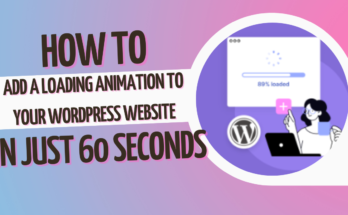blogger or wordpress? Both Blogger (formerly Blogspot) and WordPress are popular platforms for blogging, and each has its own set of features and advantages. The choice between the two depends on your specific needs and preferences. Here’s a comparison to help you decide which one might be a better fit for your blogging goals:

Blogger:
Ease of Use:
Blogger is known for its simplicity and user-friendly interface. It’s a great choice for beginners who want to start blogging without a steep learning curve.
Hosted by Google:
Blogger is hosted by Google, which means you don’t need to worry about hosting or server management. It’s a free service, and your blog’s URL will be a subdomain of blogspot.com.
Customization:
While you can customize the look and feel of your Blogger blog, it’s not as flexible as WordPress. You have a limited selection of themes and templates, but you can also edit the HTML and CSS.
Integration with Google Services:
If you already use Google services like AdSense or Google Analytics, integrating them with Blogger is straightforward.
Limited Plugins and Widgets:
Blogger has a limited number of widgets and plugins compared to WordPress.
WordPress:
Versatility:
WordPress is highly versatile and can be used for various types of websites, not just blogs. It powers a significant portion of the internet, and you can find themes and plugins for almost any purpose.
Self-Hosted or Hosted:
You have the option to use WordPress.com (hosted by Automattic) or self-hosted WordPress (WordPress.org). Self-hosted WordPress gives you more control and flexibility, but it requires web hosting.
Customization:
WordPress offers an extensive library of themes and plugins, and you can customize your blog to a great extent. You can even create a custom theme if you have the technical skills.
SEO and Plugins:
WordPress provides a wide range of SEO plugins and tools, making it easier to optimize your blog for search engines.
Community and Support:
WordPress has a large and active user community, which means you can find plenty of tutorials, forums, and resources to help with any issue.
In summary, if you want a simple and hassle-free way to start a blog and you don’t require extensive customization, Blogger may be a suitable choice. However, if you want more control, flexibility, and the ability to expand your blog into a full website in the future, self-hosted WordPress is often the preferred option. It’s worth noting that WordPress.com offers a more managed hosting solution if you don’t want to deal with the technical aspects of self-hosting.
Sure, here are the pros and cons of both Blogger and WordPress:
pros and cons of Blogger
Pros of Blogger:
Ease of Use:
Blogger is known for its user-friendly interface, making it a great choice for beginners who want to start blogging quickly.
Hosted by Google:
Blogger is hosted by Google, so you don’t have to worry about finding hosting or managing servers. It’s a free service, and your blog’s URL will be a subdomain of blogspot.com.
Maintenance-Free:
Blogger takes care of the technical aspects, including security, updates, and backups, so you can focus on content creation.
Integration with Google Services:
If you already use Google services like AdSense or Google Analytics, integrating them with Blogger is straightforward.
Limited Customization:
While customization is possible, it’s not as flexible as WordPress. You have a limited selection of themes and templates, but you can also edit the HTML and CSS.
Cons of Blogger:
Limited Features:
Blogger has fewer features and options compared to WordPress, which may limit your blog’s functionality.
Limited Templates:
While you can customize the design, the available templates are limited, and creating a unique look can be challenging.
Ownership:
Since Blogger is hosted by Google, you have less control over your content and could risk losing your blog if Google decides to shut down the service or take action against your content.
Monetization Limitations:
Blogger has limitations on monetization, and Google AdSense is the primary ad network integrated. You may have fewer options for generating income compared to self-hosted WordPress.
Pros of WordPress:
Versatility:
WordPress is incredibly versatile and can be used for various types of websites, not just blogs. It powers a significant portion of the internet.
Customization:
WordPress offers an extensive library of themes and plugins, allowing you to customize your blog to a great extent. You can create a custom theme if you have the technical skills.
SEO and Plugins:
WordPress provides a wide range of SEO plugins and tools, making it easier to optimize your blog for search engines.
Self-Hosted Option:
With self-hosted WordPress, you have full control over your website, including the choice of web hosting and domain name.
Community and Support:
WordPress has a large and active user community, which means you can find plenty of tutorials, forums, and resources to help with any issue.
Cons of Blogger:
Learning Curve:
While WordPress is powerful, it also has a steeper learning curve, especially for beginners. You’ll need to invest time in learning how to use it effectively.
Maintenance:
Self-hosted WordPress requires more maintenance in terms of updates, security, and backups. You’re responsible for these aspects.
Costs:
While WordPress itself is free, self-hosting, premium themes, and plugins may incur additional costs.
Security:
WordPress sites can be vulnerable to security threats if not properly maintained. It’s essential to keep your software and plugins up to date and implement security measures.
Hosting and Domain Costs:
Self-hosted WordPress requires purchasing web hosting and a domain name, which may not be free.
In summary, the choice between Blogger and WordPress depends on your specific needs and preferences. Blogger is simpler and maintenance-free but has limitations, while WordPress offers more control and flexibility but requires more technical knowledge and effort. Your decision should align with your blogging goals and technical expertise.
